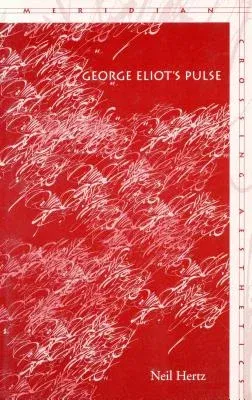Neil Hertz
(Author)George Eliot's PulsePaperback, 28 February 2003

Qty
1
Turbo
Ships in 2 - 3 days
In Stock
Free Delivery
Cash on Delivery
15 Days
Free Returns
Secure Checkout

Part of Series
Meridian: Crossing Aesthetics
Print Length
192 pages
Language
English
Publisher
Stanford University Press
Date Published
28 Feb 2003
ISBN-10
0804743908
ISBN-13
9780804743907
Description
Product Details
Author:
Book Format:
Paperback
Country of Origin:
US
Date Published:
28 February 2003
Dimensions:
21.44 x
14.73 x
1.22 cm
Genre:
Feminine
ISBN-10:
0804743908
ISBN-13:
9780804743907
Language:
English
Location:
Stanford, CA
Pages:
192
Publisher:
Weight:
226.8 gm